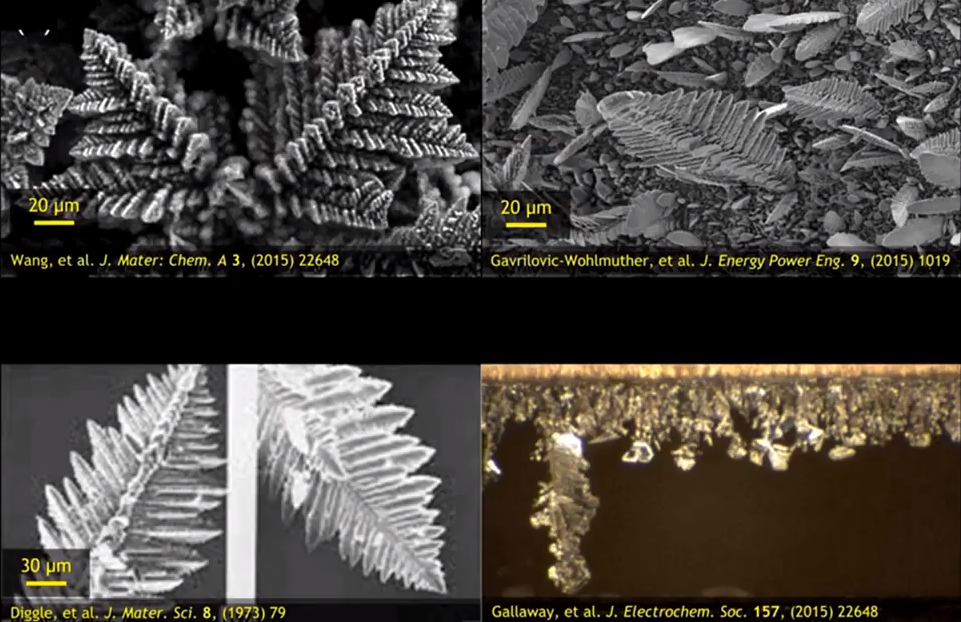While investors scramble to add lithium investment to their portfolios in the wake of rising demand, the now-popular metal might not be worth so much in the near future. While lithium-ion batteries are currently instrumental to run current technologies like smartphones, laptops, and electric vehicles, new research have found that zinc-based batteries could very much do the same thing. Not only that, zinc-based batteries could also be safer, cheaper, smaller and lighter than lithium-ion ones. With further study and research, zinc-based batteries could eventually be used in mild hybrids, electric vehicles, electric bicycles, smartphones, and/or power grid storage.
Researchers are now conducting further testing on zinc-based batteries and considering scaling up the technology. A San Anselmo, California-based energy technology firm EnZinc has been working to engineer and test the new batteries. EnZinc CEO Michael Burz stated that, “We feel we can have a battery ready for the market by the end of 2019.” Burz also noted that zinc-based batteries will be about 30-50% cheaper than its lithium-ion counterparts when it comes to powering electric vehicles.
Lithium-ion batteries, while still dominant in the market, has become a concern as incidents have been reported of the technology overheating, causing phones to burn through pockets and even airplane engines to catch on fire. The U.S Navy has begun looking for alternative rechargeable batteries as the incidents regarding lithium-ion batteries have caused safety concerns in the military in regards to having the tech on soldiers, sailors, and platforms, explained Debra Rolison head of advanced electrochemical materials at the U.S. Naval Research Laboratory and one of the researchers involved in the breakthrough of zinc-based batteries.
Not only does zinc-based batteries carry less fire-risk than lithium-ion batteries, it can also — in principle — match or even surpass its lithium-ion counterpart in energy per unit mass and energy per unit volume. Zinc is also cheaper and more widely available than lithium. As such, zinc-based batteries has a very high potential to be the battery of choice worldwide in single-use applications, Rolison said.
There is, however, just one concern: zinc-based batteries aren’t rechargeable in practice. The batteries usually die after only a couple of cycles of recharging and discharging, Rolison explained, because conductive whiskers called dendrites can grow inside the batteries and, when it is long enough, cause short circuits.
Rolison, Burz, and other researchers and colleagues have been trying to develop a zinc-based battery where the growth of dendrites could be suppressed. This is possible thanks to the zinc anode, which works in a sponge-like way that helps charge move across the entire battery structure with each discharge and recharge. When electric currents are more evenly distributed within this anode, dendrites will have difficulty forming, explained Joseph Parker, one of the research chemists at the U.S. Naval Research Laboratory.
Zinc anodes are made by drying zinc emulsions in cylindrical molds overnight and then baking the resulting disks for a few hours in a furnace; Burz jokes, “It’s like we’re baking muffins.”
In an experiment, the researchers paired zinc anode with nickel cathode and found out that the combination allowed the battery to survive more than 50,000 short cycles of discharging and recharging. The zinc-based battery with the pairing of zinc anode and nickel cathode also had the same amount of energy as the lead-acid batteries used in micro hybrid vehicles: a total of 1720 watt-hours. As well, the zinc-based battery was a lot lighter than the lead-acid ones, weighing a total of 21.7 kilograms compared to lead-acid’s 45 kilograms.
The research suggested that, when compared to a lithium-ion battery, the zinc-based battery with zinc anode and nickel cathode can run a Nissan Leaf as well as the lithium-ion does, and in a smaller and lighter package. Similar suggestions can be made when looking at electric bicycles and comparing its lead-acid battery usage and zinc-based battery usage.
Source: YouTube/Military News
Overall, with the study, zinc-based batteries could very much deliver the same energy as lithium-ion batteries but still remain at the cost of lead-acid batteries — all the while being safer and recyclable and makes use of materials that are not short-supplied, Burz said. “Zinc is the fourth-most mined material on the planet — over 14 million tons of it are mined per year.”
When he spoke with the International Zinc Association about the amount of zinc that would be needed if research did pull through and the batteries be put to use in electric vehicles, micro hybrids, and/or electric bicycles, the Association laughed and joked, “We spill more zinc than you need.”
Zinc anodes will be essential to the use and research of zinc-based batteries, and the potential that it takes on more widespread useage. “We should be able to use these batteries for anything from micro-devices to consumer electronics to vehicles to the grid,” Rolison said.
EnZinc currently holds a partially exclusive license for the research on zinc-nickel batteries in electric vehicles and/or bicycles, but license for other applications and cathodes are still open, note Steven Marquis, who works at the U.S. Naval Research Laboratory technology transfer office.
Besides zinc-nickel batteries, Navy researchers are also exploring other cathodes to use with zinc anodes — a promising one being a silver-zinc cathode. Rolison noted that, “Silver-zinc shows power not seen with lithium-ion. It could be of extreme interest to the Navy for submersible applications.”
Further research and more detailed information can be found in the April 28, 2017 issue of Science.
Featured Image: YouTube/Military News









